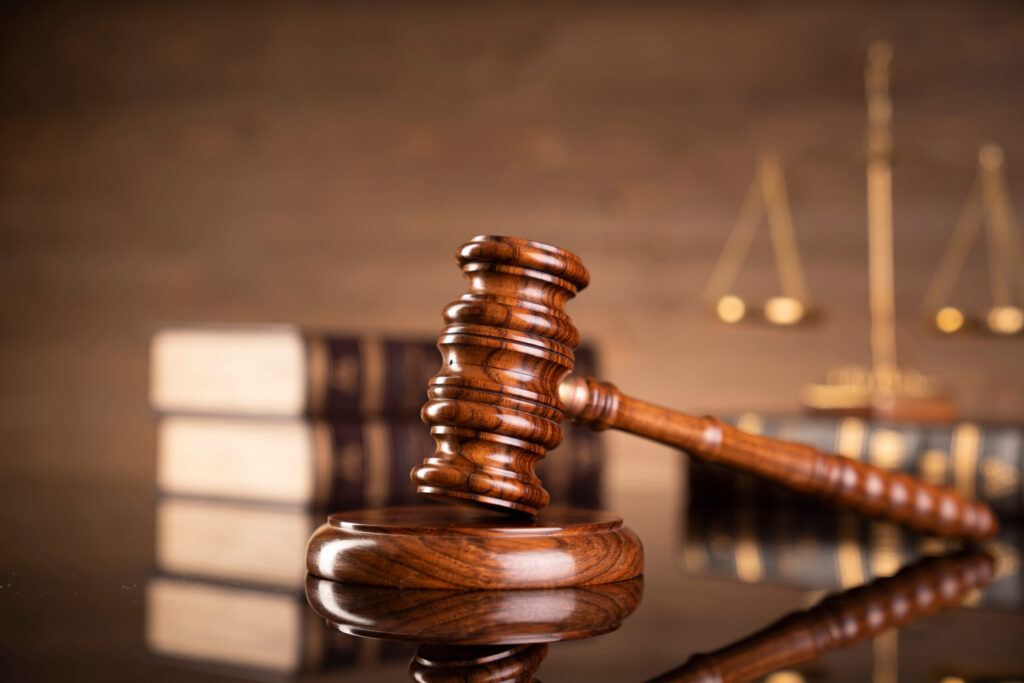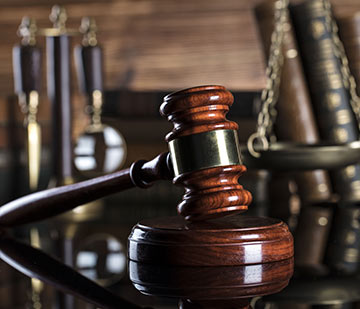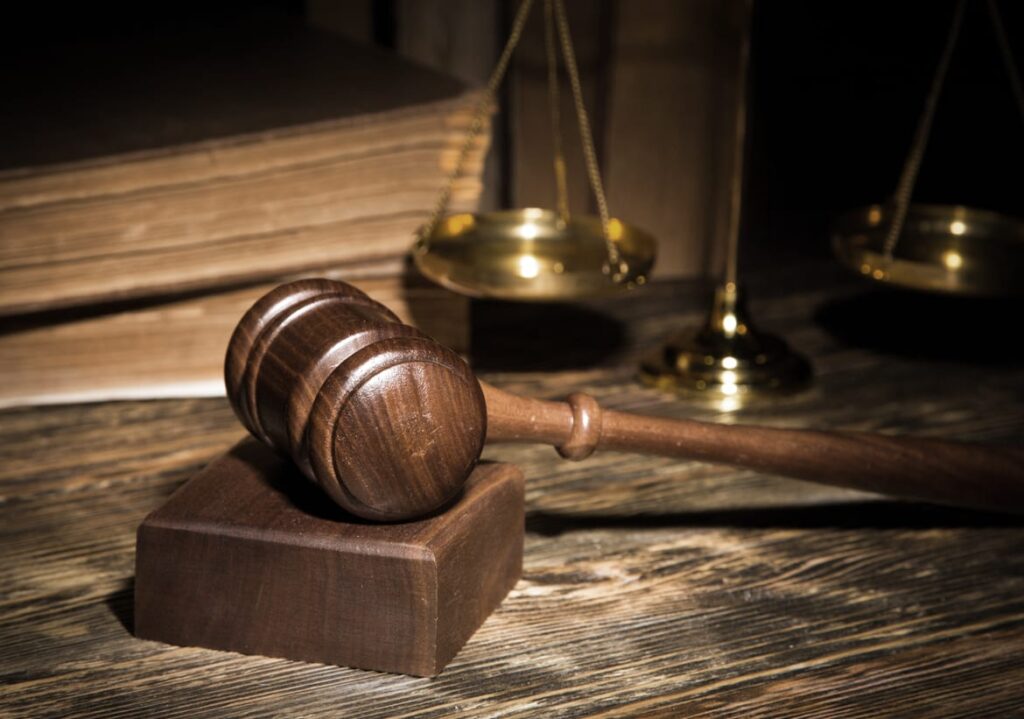About thirty minutes before dawn on March 20, 2020, the guys who broke Nirbhaya were hanged. Just a few hours before, at 2:30 AM, in an odd meeting after midnight, the Supreme Court heard a last-minute plea from one of the convicts. Nirbhaya apparently scribbled a message on a piece of paper, “Mother, I want to live,” while she was lying in the hospital bed seven years earlier, having been raped, beaten, brutalized, and badly hurt.
Nirbhaya had several surgeries between December 16, 2012, the night of the attack, and December 29, 2012, the day she died. The most extensive, her fifth surgery, involved the removal of most of her intestine. Despite her bad condition, she managed to provide three sets of dying declarations.
A doctor wrote down the first statement. Nirbhaya said in the second declaration, which was written down by a sub-divisional judge on December 21, “I want them hanged until death… I want to see them burned alive.” In the third declaration, which was written down by a metropolitan magistrate four days later, she said the same thing. Nirbhaya was so weak at that point that she could only talk with signs, gestures, and nods. It is said that her last words to her father were, “You go to sleep. I will also sleep.”
Doctors were shocked when this “brave woman” lived for 13 days after being seriously hurt and supposed to have died right away. Doctors are taught to be analytical and not emotional, but most of the doctors who worked with her feel she was a case they would remember all their life.
There was a young woman once upon a time. She loved her parents and brothers very much, movies, and life in general. Her goal of life was to be a physiotherapist and she was dreaming of becoming a doctor.
In the important Nirbhaya case, on May 5, 2017, the Supreme Court of India upheld the death sentencing for four adults. The bench was led by Justice Dipak Misra, who served as the presiding judge and later became the Chief Justice of India. Justice R. Banumathi and Justice Ashok Bhushan were the other judges on the bench. Together, they confirmed the accused’s convictions and death sentences, which was a big step forward in how the law responded to the horrible crime. This story goes into detail about the Nirbhaya case, including the gang rape, the court case, legal proceedings, and the Supreme Court’s death penalty ruling. It also looks at how the case affected India’s legal reforms, the victim’s family’s problems, and the bigger effects on society as a whole.
Background of the Case: The Brutal Assault on Nirbhaya [Fearless]
On the night of December 16, 2012, Jyoti Singh, 22, and her boyfriend were going home after seeing Life of Pi at a mall in Saket, New Delhi. Around 9:30 PM, they hop on a private bus at Munirka because they thought it was going to their destination. They didn’t know it, but in the bus, there was six guys, including the driver, who had planned something terrible.
The Attack on Nirbhaya
Jyoti’s friend saw that the bus was going off-route and the doors were locked soon after the bus took off. When he spoke out against it, the six men Mukesh Singh, Akshay Thakur, Vinay Sharma, Pawan Gupta, Ram Singh, and a young boy and they began making fun of the pair. When the men objected, they struck Jyoti’s friend and beat him with an iron rod until he passed out, things quickly got worse.
The invaders then put their attention on Jyoti. They pulled her to the back of the bus and beat her badly and raped her and used the iron rod to inflict severe internal injuries. Jyoti bit three of her attackers to try to fight back, but the violence continued. Her injuries were terrible, the L-shaped iron rod damaged her abdomen, intestines, and genitals. In a bus, the L-shaped bar was used to move the jack so that the tires could be changed. During the horrible attack on Jyoti Singh (Nirbhaya), however, it was sadly used as a tool by the attackers to hurt her badly.
After the attack, the people who did it threw Jyoti and her friend off the moving bus and left them on the side of the road. Someone saw them and called the police. Both of them were taken to Safdarjung Hospital, where Jyoti was put on automatic breathing because her injuries were so bad. The next day, the cops took the bus away and found bloody metal rods that were used in the attack for penetration.
The Criminals and Legal Proceedings of Nirbhaya Case
The bus driver, Mukesh Singh, and a cleaner on the bus, Akshay Thakur, were two of the key people who did it. Mukesh was in charge of the bus while Akshay was attacking. Vinay Sharma and Pawan Gupta both got involved in the attack and rape. Ram Singh, Mukesh’s brother, was also in the group, but he allegedly killed himself in jail before the hearing was over. The criminal was 17 years old at the time of the crime and was tried separately under the Juvenile Justice Act. His name was not made public because of his age.
Conviction and Sentencing in Nirbhaya Case
The five adults who did it were charged under several parts of the Indian Penal Code (IPC):
Section 302, Murder: The Indian Penal Code (IPC) has a Section 302 that deals with the crime of murder. It suggests the death penalty or life imprisonment as punishment, along with a fine, depending on the severity of the case.
Section 376, Rape: Section 376 is about the crime of rape. The punishment ranges from harsh imprisonment for a term of not less than ten years, which may extend to life imprisonment, along with a fine.
Section 377, Unnatural Offences: This section talks about “unnatural offenses,” which include sexual acts that are against the order of nature that happen without consent. The punishment can be imprisonment for life or for a term not less than ten years, along with a fine.
Section 366, Kidnapping or Assaulting a Woman to Force Her to Marry: This section is about kidnapping or assaulting a woman to force her to marry or have an illegal relationship. The punishment is up to ten years in jail along with a fine.
Section 307, Attempt to Murder: Section 307 addresses the attempt to commit murder. If the attempt leads to injury, the offender can be sentenced to imprisonment for up to ten years, or life, and may also be legally responsible to a fine.
Section 394, Willfully Causing Hurt in Committing Robbery: This section talks about hurting someone while committing a robbery. The person who did this can get a fine and strict jail term for up to ten years.
Section 34, Acts Done by Several Persons in Furtherance of Common Intention: Section 34 addresses criminal acts carried out by several persons with a common intention. All of the people participating will get the same sentence as if they had done the act individually.
The four men, Mukesh Singh, Akshay Thakur, Vinay Sharma, and Pawan Gupta, were found guilty of all crimes and given the death penalty by hanging in March 2013. Their death sentences were upheld by the Delhi High Court and later by the Supreme Court of India. The four men were executed on March 20, 2020, after all legal options and appeals, including mercy petitions
Afroz’s Rehabilitation and post-release plan: The juvenile Involved
The juvenile got three years in a reform centre, which was the longest term that could be given at that time under the Juvenile Justice Act. Many people were publicly outraged by his sentence, which led to discussions about changing the law about how to treat minors who have been involved in major crimes. He got out of jail in 2015 after serving his time.
In a fit of anger, Jyoti’s younger brother is said to have tried to attack the minor offender after the decision was read. But the people in the hall stepped in and stopped him. The minor offender was then set free on December 20, 2015.
Under the Juvenile Justice Act of 2000, management groups are set up to help young criminals get better and rejoin society before they are released. A full “post-release plan” for Afroz, a minor involved in the Nirbhaya case, was sent to the Delhi High Court in December 2015. A group led by an officer from the District Child Protection Unit came up with this plan. It said that Afroz should be given a new name and identity to protect him from possible violent or negative responses from the public.
It was written in the report that Afroz had learned how to cook and tailoring while he was in the reform house. The plan called for giving him a tailoring shop, a sewing machine, and other useful tools to help him make the change. It also suggested that the government give him a one-time gift of ₹10,000, which is about $120. The Department of Women and Child Development (WCD) decided to give the grant and work with an NGO to get the sewing machine. Afroz’s family turned him down because of his crime, but he was said to have found work as a cook after he got out of jail.
Justice for Nirbhaya: The Legal Journey and Execution of the Convicts
In their over seven-year fight for justice for their daughter [Nirbhaya] Asha Devi and Badrinath Singh had to go through a very long and painful process. There were a lot of delays and problems in the legal process, such as multiple requests by the prisoners, pardon pleas, and legal fights that were meant to make the case last longer. The President of India turned down a plea for mercy on January 17, 2022, even though the home ministry told him to do so.
During this time, her parents were in and out of court all the time, going over the horrible details of the crime over and over again, which was very upsetting. India’s law system was very complicated for them to understand while they were dealing with their deep sadness and loss. Even though they faced problems, they stayed determined to get justice and spoke out for women’s safety and better laws.
They also felt bad about their emotional and mental health because of the long court case. They were in a lot of pain because the executions were always being put off. Each delay felt like a violation of justice. They were determined, though, and their hard work paid off when the prisoners were put to death on March 20, 2020. This gave them a feeling of peace.
Jyoti Singh, also known as Nirbhaya, got justice on March 20, 2020, after a long and difficult court case that ran more than seven years. The horrific group rape and attack on December 16, 2012, brought the case to the attention of people all over the world, and there were large-scale protests calling for justice to be done quickly.
A fast-track court convicted the four adult criminals on September 13, 2013, Akshay Thakur, Vinay Sharma, Pawan Gupta, and Mukesh Singh, who were involved in the crime, were found guilty of multiple charges, such as murder, rape, and kidnapping so they were given the death sentence. On March 13, 2014, the Delhi High Court upheld the death penalties. On May 5, 2017, the Supreme Court of India also upheld the verdict. When the court confirmed the death sentences given in September 2013, they said that the crime was in the “rarest of the rare category” that allows for the death penalty.
Even after their death sentences were confirmed, the prisoners made many appeals and requests for mercy, which added to the delays. The hanging was put off several times because of problems and problems with the law. One of the prisoners, Ram Singh, who was also involved in the case, killed himself by hanging himself in his jail cell on March 11, 2013, while he was being questioned by police. This made things even worse for the families of the victims.
While he was on death row, Mukesh Singh said some terrible things about Jyoti Singh and blamed her for the rape. Then he said, “You need two hands to clap with one. A decent girl will not roam around at 9 o’clock at night. A girl is far more responsible for rape than a boy. Boy and girl are not equal. Housework and housekeeping are for girls, not roaming in discos and bars at night doing wrong things, wearing wrong clothes. About 20 percent of girls are good”. Singh also said that, if Jyoti should have remained passive during the assault or being raped and have not fighted back. She should just remain silent and allowed the rape. Then they would have just dropped her off after ‘doing her’, and only hit the boy.”
The death sentences were carried out in the end, and Akshay Thakur, Vinay Sharma, Pawan Gupta, and Mukesh Singh were the last four prisoners to be hanged at Tihar Jail at 5:30 AM on March 20, 2020. This was the end of a long and painful court process. It gave the families of the victims some peace of mind and was a big step forward in the fight for justice and women’s safety in India.
Impact on Legislation of Nirbhaya Case
There were significant changes in India’s legal framework regarding sexual violence after the Nirbhaya case. The Criminal Law (Amendment) Act, 2013, also called the Nirbhaya Act, made sentences tougher. For example, if a victim of rape dies or is left in a vegetative state, the offender can be put to death. The case also led to the creation of fast-track courts to handle rape cases quickly at the same time.
Following the gang rape of Jyoti Singh, also known as Nirbhaya, several committees and reforms were made to deal with the issues brought up by the case and make the law and justice system better when it comes to sexual violence.
- Verma Committee for Justice (2013)
The Indian government set up the Justice Verma Committee on December 23, 2012, in response to the large number of protests that followed the Nirbhaya case. The group, which was led by former Chief Justice J.S. Verma, was asked to look over current rules and suggest changes that would make them better for protecting women. The Justice Verma Committee made a number of important suggestions, including:
Expansion of Definitions: It was suggested that different types of sexual abuse and harassment should be included in the meaning of rape.
Strengthened Penalties: It called for harsher punishments for sexual crimes, even the death sentence in situations where the victim died.
Faster Trials: The group pushed for fast-track courts to speed up the process of trials for sexual crimes.
- Nirbhaya Fund (2013)
When the Indian government set up the Nirbhaya Fund in 2013, it was to back projects that would make women safer and help victims of sexual abuse. The money has been used for many things, such as:
Setting Up Helplines: Creating safety helplines and support centres for women.
Strengthening Infrastructure: Providing money for the creation of safer infrastructure in public transportation and Urban area.
Support Services: These include counselling and legal help, as well as money to help victims and their families.
- Criminal Law (Amendment) Act, 2013 (Nirbhaya Act)
This change was made in direct response to the Justice Verma Committee’s suggestions. It was passed in March 2013. Important rules included:
Definition Expansion: More types of sexual violence were added to the description of rape.
New Offenses: New crimes like acid attacks, stalking, and voyeurism are now legal.
Fast-Track Courts: Setting up fast-track courts so that sexual crimes can be tried quickly.
- Criminal Law (Amendment) Act, 2018
The Act was passed to fill the gap left by the 2013 update and make more changes. The main changes were:
Increased Penalties: More severe punishments will be given to repeat offenders and people guilty of gang rape.
Minor Victims: Tougher rules for cases involving kids.
Protection of Victims: Better protection and help for victims during the legal process.
- Criminal Law (Amendment) Act, 2024
The most recent change shows that attempts to make sexual offence laws stronger are still going on. Important changes include:
Enhanced Penalties: The penalties for sexual abuse will be even harsher, with longer terms and new rules for repeated offenders.
Support for Victims: Better ways to help victims, such as better legal aid and counselling programs.
Prevention Measures: New ways to stop sexual abuse and make the public safer are being considered as prevention measures.
These committees and changes to the law are part of a larger attempt to fix problems in India’s legal system and make sure that victims of sexual abuse get better justice.
More strict laws were made by the Criminal Law (Amendment) Act, 2024. These laws are especially important when there is extreme violence or when the target is a child. The changes are now part of the Bharatiya Nyaya Sanhita (BNS), which aims to bring the Indian Penal Code to modernize and make its laws more consistent so that women’s rights are better protected and victims of sexual violence get justice.




